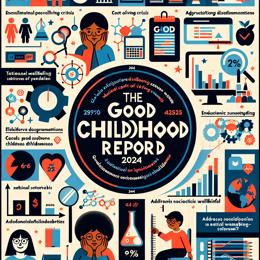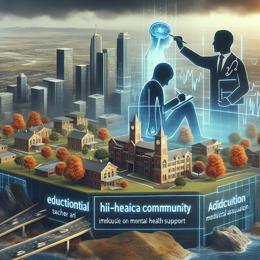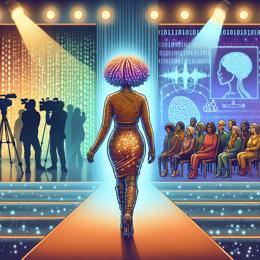Image created by AI
The Digital Dilemma: Social Media’s Impact on Teen Mental Health Remains Unclear
The digital era’s hallmark has been the rise of social media, and with it, a contentious global discussion about its influence on the mental health of the younger generation. The publication of "The Anxious Generation" by social psychologist Jonathan Haidt has reignited concerns, casting smartphones and online platforms as catalysts for youth anxiety and mental illness. Despite the growing body of research, however, the question persists: are governments justified in enforcing bans and limitations on teenagers’ digital consumption?
Conflicting scientific opinions further muddy the waters. Candice Odgers of Duke University highlights the conundrum in her review of Haidt’s work: while negative associations with social media exist, causation is not evident. Haidt cites experiments suggesting benefits from reduced use, yet Christopher Ferguson of Stetson University argues that overall, such restrictions seem inconsequential to mental health, based on his meta-analysis of multiple studies.
The plot thickens with Haidt and colleague Zach Rausch disputing Ferguson's methods and findings, only to face criticism themselves. Matthew B. Jané weighs in with scrutiny of both analyses, arguing that neither presents a compelling case. Reanalysis and similar studies continue to present a fragmented narrative, leaving the actual impact of social media reduction on mental health as an open-ended question.
Laudable in aim though they may be, studies often suffer from methodological weaknesses. From German Facebook users to American undergraduates, results fluctuate – some report benefits or harms, but occasionally, no tangible effects at all. The methodologies, often reliant on self-reporting, introduce bias and limitations in scope, without considering broader definitions of social media, nor a range of measurable interventions.
Furthermore, the social nature of these platforms complicates individual-focused studies, as the effects might be mitigated or magnified by the behaviors of the surrounding community. Additionally, the absence of research specifically targeting teenagers narrows the applicability of these findings to the policies meant to protect them.
Currently, the push for restrictive legislation marches on, despite the inconclusive evidence from the scientific community regarding social media's actual effects on teen mental health. As it stands, the question of whether reduced use leads to improved well-being remains shrouded in uncertainty, with much more robust and targeted research required before definitive policies can be drawn.










